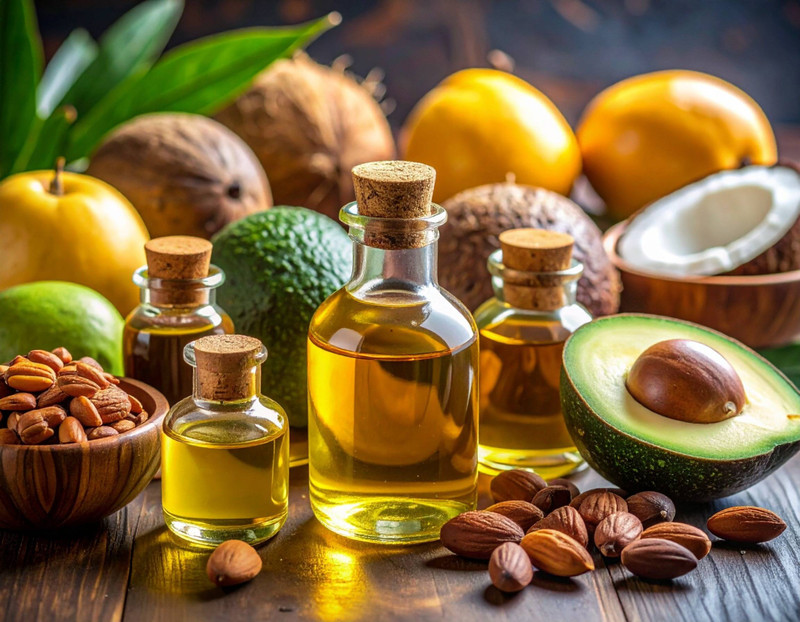Wisdom & Wellbeing: The Power of Carrier Oils
Have you ever wondered - What exactly are Carrier Oils and Why Do We Need Them?
Carrier oils are plant-based oils that serve as the perfect partners for topical use with essential oils. Because essential oils are highly concentrated (as much as 100 times more than the plant material), applying them directly to skin is ill advised as it can lead to irritation or sensitivity. Carrier oils are used to dilute essential oils and help “carry” them safely onto the skin.
Proper Dilution is Essential:
Carrier oils make an excellent means to dilute pure essential oils for safe application to skin and body. When creating Aromatherapy products, proper dilution of essential oils is crucial to achieve optimal results. Safe levels typically range from around 1–5%, depending on the treatment and the person (e.g., lower for children, pregnant women, or sensitive skin).
Essential Oil Dilution Chart for Aromatherapy Body Treatments
Purpose | Dilution % | Drops per 1oz (30mL) Carrier |
Facial Care / Sensitive Skin | 0.5 - 1% | 3 - 6 Drops |
Everyday Body Care | 1 - 2% | 6 - 12 Drops |
Therapeutic Massage | 2 - 3% | 10 - 15 Drops |
Short-term Spot Treatment | 4 - 5% | 25 Drops |
Carrier Oils Help Us Achieve the Perfect “Slip” or “Glide”
In massage, skincare, and Aromatherapy application, carrier oils not only make essential oils safer to use topically but also allow for better absorption and enhanced benefits. Many carrier oils contain their own beneficial nutrients such as vitamins, fatty acids, and ceramides* (see below). They provide the ideal amount of slip and glide for body treatments, ensuring a smooth, nourishing experience. By selecting the appropriate carrier oil, you can customize an aromatherapy treatment to suit specific wellness goals such as promoting relaxation, nourishing skin, or easing muscle tension.
What is the Difference Between a Carrier Oil and a Base Oil?

In the Aromatherapy industry, "carrier oil" is the more precise term for oils that dilute essential oils for topical use.
On the other hand, "Base oil" is a broader term that can include:
Carrier oils
Herbal-infused oils (like calendula in jojoba oil)
Butter-like oils (e.g., shea butter melted into a blend)
Oils used in making creams, serums, or balms
A Look at Some Commonly Used Carrier Oils in Aromatherapy Body Treatments
SUNFLOWER OIL
- Texture: Light, smooth and non-greasy
- Skin Type: Normal to dry skin
- Benefits: High in vitamin E and linoleic acid; soothing and moisturizing, strengthens skin barrier
- Ceramide-Like Action*: Contains linoleic acid (a key fatty acid used to form ceramides in the skin)
- Skin Type: Great for dry or sensitive skin
- Scent: Mild, neutral


SAFFLOWER OIL
- Texture: Light, smooth and silky, perfect slip for massage
- Benefits: High in linoleic acid and vitamin E; helps moisturize and calm the skin
- Skin Type: Non-comedogenic (does not block pores), great for acne-prone or oily skin.
- Ceramide-Like Action*: Helps restore the lipid barrier and may help the skin synthesize more ceramides
- Scent: Its neutral aroma and light feel make it ideal as a base oil in essential oil blends or for clients with sensitivities.
SWEET ALMOND OIL
- Texture: Light, smooth, easily absorbed and excellent slip for massage
- Skin Type: Most skin types; great for full-body massage
- Benefits: Rich in vitamin E and fatty acids; soothes and softens skin
- Ceramide-Like Action*: While it does not have direct ceramide action, it does support the skin barrier
- Scent: Mild and nutty

Fractionated v. Virgin Coconut Oil
Fractionated coconut oil is a processed, more refined version of coconut oil which is specifically tailored for certain uses where its liquid state and enhanced absorption are beneficial.

FRACTIONATED COCONUT OIL
- Texture: Light and silky, excellent glide
- Skin Type: Most skin types, especially dry or irritated skin
- Benefits: Excellent glide, won’t clog pores, emollient, long shelf life
- Scent: Slight to no coconut aroma (depending on processing)
- CAUTION! Check for those with a nut allergy
VIRGIN COCONUT OIL
- Solidifies at room temperature (around 76°F).
- Can be slower to absorb into the skin and may leave a greasy residue.
- Has a shorter shelf life compared to fractionated oil.
- Has a distinct coconut aroma and flavor.
Blending Tip - when blending the perfect carrier oil for your intended use it is common to combine carrier oils with the properties you’re aiming for in order to attain the ideal slip, glide, and nutritional benefits you want for your blend.
*WHAT ARE CERAMIDES?
Ceramides are natural lipids (fats) that make up over half of the skin’s outer layer. Think of them as the "mortar" between the "bricks" of your skin cells, helping to hold everything together, lock in moisture, and protect against environmental stressors.
This makes them especially valuable in carrier oils for body treatments focused on restoring the skin’s barrier, soothing dryness, and enhancing hydration.
NOTES & PRECAUTIONS:
NOTE: Proper Storage is Key - Keep oils in dark-colored glass bottles in a cool, dark area away from heat and light.
PRECAUTIONS: Consult your healthcare professional about use if you have a skin condition, hormone-sensitive issues, or are undergoing certain treatments (like radiation).




